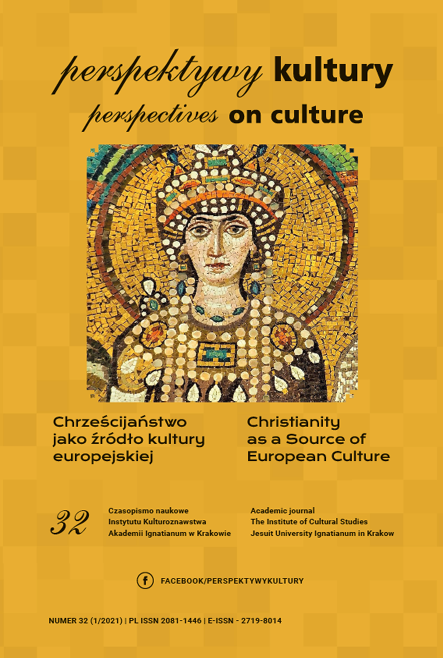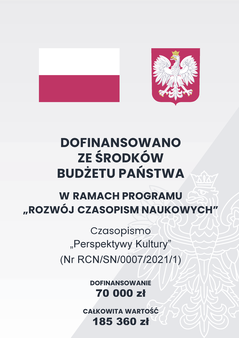Kompetencje międzykulturowe studentów z wybranych krajów Unii Europejskiej (Polska, Hiszpania, Czechy, Włochy).
Wstępne założenia projektu badawczego
Abstrakt
Czynnikiem determinującym podjęcie niniejszego tematu badawczego są aktualne zmiany na rynku pracy. Coraz częściej przyjmuje się, że pozycja i rola pracownika na współczesnym rynku pracy nie zależą wyłącznie od jego specjalistycznej wiedzy i zawodowych kwalifikacji. Jest to szczególnie istotne, kiedy rozważamy ten problem pod kątem wielokulturowego środowiska pracy, w którym nawet kompetencje językowe tracą na znaczeniu, ponieważ – bez umiejętności adaptacji do nowych warunków kulturowych – nie odgrywają one większej roli. Umiejętne zarządzanie różnorodnością kulturową staje się źródłem przewagi konkurencyjnej w momencie, gdy firma przyjmuje odpowiednie strategie i techniki. Głównym celem projektu jest zbadanie roli kompetencji międzykulturowych jako ważnego elementu uniwersyteckiego kształcenia, zarówno z punktu widzenia programów edukacyjnych, jak i rynku pracy. Obecnie uważa się, że kompetencje międzykulturowe, rozumiane jako zdolność do współpracy z przedstawicielami innych kultur, są bardzo ważnym elementem kształcenia uniwersyteckiego w procesie przygotowywania studentów do skutecznego funkcjonowania na globalnym rynku pracy. Poziom umiejętności interpersonalnych poszczególnych członków zespołu wielokulturowego (zwłaszcza poziom inteligencji kulturowej) umożliwiający im efektywną współpracę z przedstawicielami innych kultur jest jednym z głównych elementów kompetencji międzykulturowych. Na podstawie wyników badań zostaną zaproponowane uzupełnienia do teorii nauki o zarządzaniu, uwzględniające międzynarodowe realia oraz potrzebę wzmacniania poczucia znaczenia kompetencji międzykulturowych na rynku pracy. Wyniki projektu będą wspomagały rozwój nauki o zarządzaniu poprzez wskazanie, w jaki sposób istniejące teorie zarządzania bazują na praktyce i korzystają z niej oraz w jaki sposób są interpretowane w praktyce zarządzania. Dzięki przeprowadzanym badaniom teoretycy i praktycy zarządzania mogą zdobyć większy zakres wiedzy dotyczącej kompetencji międzykulturowych.
Bibliografia
Bean, R. (2006). The effectiveness of cross-cultural training in the Australian context. Canberra: Department of Immigration and Multicultural Affairs.
Burkiewicz, Ł. & Knap-Stefaniuk, A. (2018). Intercultural management as a challenge for modern managers – development of potential of multicultural teams. Zeszyty Naukowe Politechniki Śląskiej. Seria Organizacja i Zarządzanie, 130, 61–69.
Burkiewicz, Ł. & Knap-Stefaniuk, A. (2020a). Management by values in work of international managers. Zeszyty Naukowe Politechniki Śląskiej. Seria Organizacja i Zarządzanie, 149, 47–56.
Burkiewicz, Ł. & Knap-Stefaniuk, A. (2020b). Modern Managers and Cultural Diversity in The Workplace. In K. Soliman (ed.), Education excellence and innovation management: a 2025. Vision to sustain economic development during global challenges. Sevilla–New York: International Business Information Management Association, 7474–7483.
Chen, G.M. & Starosta, W.J. (1997). A review of the concept of intercultural sensitivity. Human Communication, 1, 1–16.
Chen, G.M. & Starosta, W.J. (1998). A review of the concept of intercultural awareness. Human Communication, 2, 27–54.
Chen, G.M. & Starosta, W.J. (2000). The development and validation of the Intercultural Sensitivity Scale. Human Communication, 3, 1–15.
Cox, T.H. & Blake, S. (1991). Managing Cultural Diversity: Implications for Organizational Competitiveness. The Executive, Vol. 5, No. 3: 47.
Graf, A. (2004). Assessing intercultural training designs. Journal of European Industrial Training, 28(2/3/4), 199–214.
Hofstede, G. (2001). Culture Consequences. Comparing Values, Behaviors, Institutions and Organizations Across Nations. Thousand Oaks–London–New Delhi: Sage Publications.
Hofstede, G., Hofstede, G.J. & Minkow, M. (2010). Cultures and Organizations. Software of the Mind. Intercultural Cooperation and Its Importance for Survival. New York: McGraw-Hill.
Ilie, O.A. (2019). The intercultural competence. Developing effective intercultural communication skills. International Conference Knowledge-based organization, Vol. XXV, No. 2, 264–268.
Inglehart, R. (1997). Modernization and Postmodernization. Cultural, Economic and Political Change in 43 Societies. New Jersey-Princeton: Princeton University Press.
Knap-Stefaniuk, A. (2020). The Importance of Cultural Intelligence in International Human Resource Management – A Pilot Study. In K. Soliman (ed.), Education excellence and innovation management: a 2025 Vision to sustain economic development during global challenges. Sevilla–New York: International Business Information Management Association, 7995–7836.
Knap-Stefaniuk, A. & Burkiewicz, Ł. (2018). Contemporary Leadership in the Conditions of Multiculturalism – Challenges for Human Resources Management. Scientia et Societas, 2/18, 113–122.
Knap-Stefaniuk, A. & Burkiewicz, Ł. (2019a). Contemporary Managers in Intercultural Management. Przedsiębiorczość i Zarządzanie, 20(6) (3), 63–75.
Knap-Stefaniuk, A. & Burkiewicz, Ł. (2019b). Multiculturalism as a Source of Conflicts in Contemporary Organizations. Przedsiębiorczość i Zarządzanie, 20(11), 97–106.
Knap-Stefaniuk, A. & Burkiewicz, Ł. (2020a). Cultural diversity of employees as a challenge at the work of international managers. In B. Domańska-Szaruga & E. Bombiak (eds.), Współczesne wyzwania w zarządzaniu zasobami ludzkimi. Siedlce: Wydawnictwo Uniwersytetu Przyrodniczo-Humanistycznego w Siedlcach, 49–61.
Knap-Stefaniuk, A. & Burkiewicz, Ł. (2020b). Modern managers’ values in a multicultural environment – an introduction to an in-depth study. In K. Soliman (ed.), Education excellence and innovation management: a 2025. Vision to sustain economic development during global challenges. Sevilla– New York: International Business Information Management Association, 1022–1034.
Morgan, G. (1989). Endangered Species: New Ideas. Business Month, Vol. 133, No. 4, 75–77.
Muszyńska, J., Danilewicz, W., & Bajkowski, T. (eds.) (2013). Kompetencje międzykulturowe jako kapitał społeczności wielokulturowych. Warszawa: Wydawnictwo Akademickie Żak.
Nikitorowicz, J. (2009). Edukacja regionalna i międzykulturowa. Warszawa: Wydawnictwa Akademickie i Profesjonalne.
Ochieng, E.G. & Price, A.D. (2009). Framework for managing multicultural project teams. Engineering, Construction and Architectural Management, Vol. 16, No. 6, 527–543.
Report prepared by Association of Business Service Leaders in Poland [Raport przygotowany przez Związek Liderów Sektora Usług Biznesowych] (2019). Sektor nowoczesnych usług biznesowych w Polsce 2019. Warszawa: Wydawnictwo ABSL.
Suchocka, A. (2016). Kompetencje międzykulturowe – przywilej czy konieczność? Colloquium Wydziału Nauk Humanistycznych i Społecznych. Kwartalnik, 4/201, 121–131.
Trompenaars, F. & Hampden-Turnera, Ch. (1997). Riding The Waves of Culture: Understanding Diversity in Global Business. New York: Nicholas Brealey Publishing.
Copyright (c) 2021 Akademia Ignatianum w Krakowie

Utwór dostępny jest na licencji Creative Commons Uznanie autorstwa – Bez utworów zależnych 4.0 Międzynarodowe.
Autor, zgłaszając swój artykuł, wyraża zgodę na korzystanie przez Wydawnictwo Uniwersystet Ignatianum z utworu na następujących polach eksploatacji:
- utrwalania utworu w formie papierowej, a także na nośniku cyfrowym lub magnetycznym;
- zwielokrotnienia utworu dowolną techniką, bez ograniczenia ilości wydań i liczby egzemplarzy;
- rozpowszechniania utworu i jego zwielokrotnionych egzemplarzy na jakimkolwiek nośniku, w tym wprowadzenia do obrotu, sprzedaży, użyczenia, najmu;
- wprowadzenia utworu do pamięci komputera;
- rozpowszechniania utworu w sieciach informatycznych, w tym w sieci Internet;
- publicznego wykonania, wystawienia, wyświetlenia, odtworzenia oraz nadawania i reemitowania, a także publicznego udostępniania utworu w taki sposób, aby każdy mógł mieć do niego dostęp w miejscu i czasie przez siebie wybranym.
Wydawca zobowiązuje się szanować osobiste prawa autorskie do utworu.






